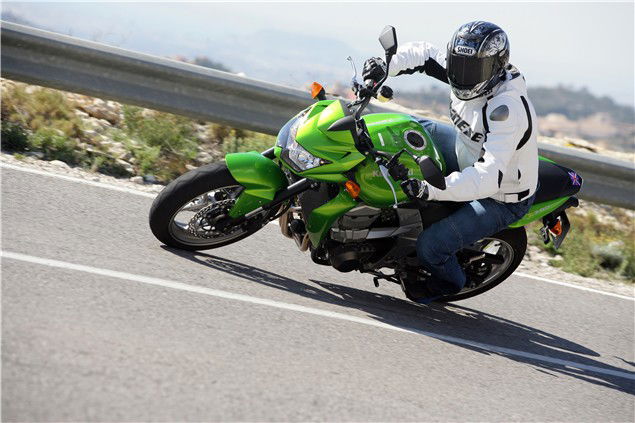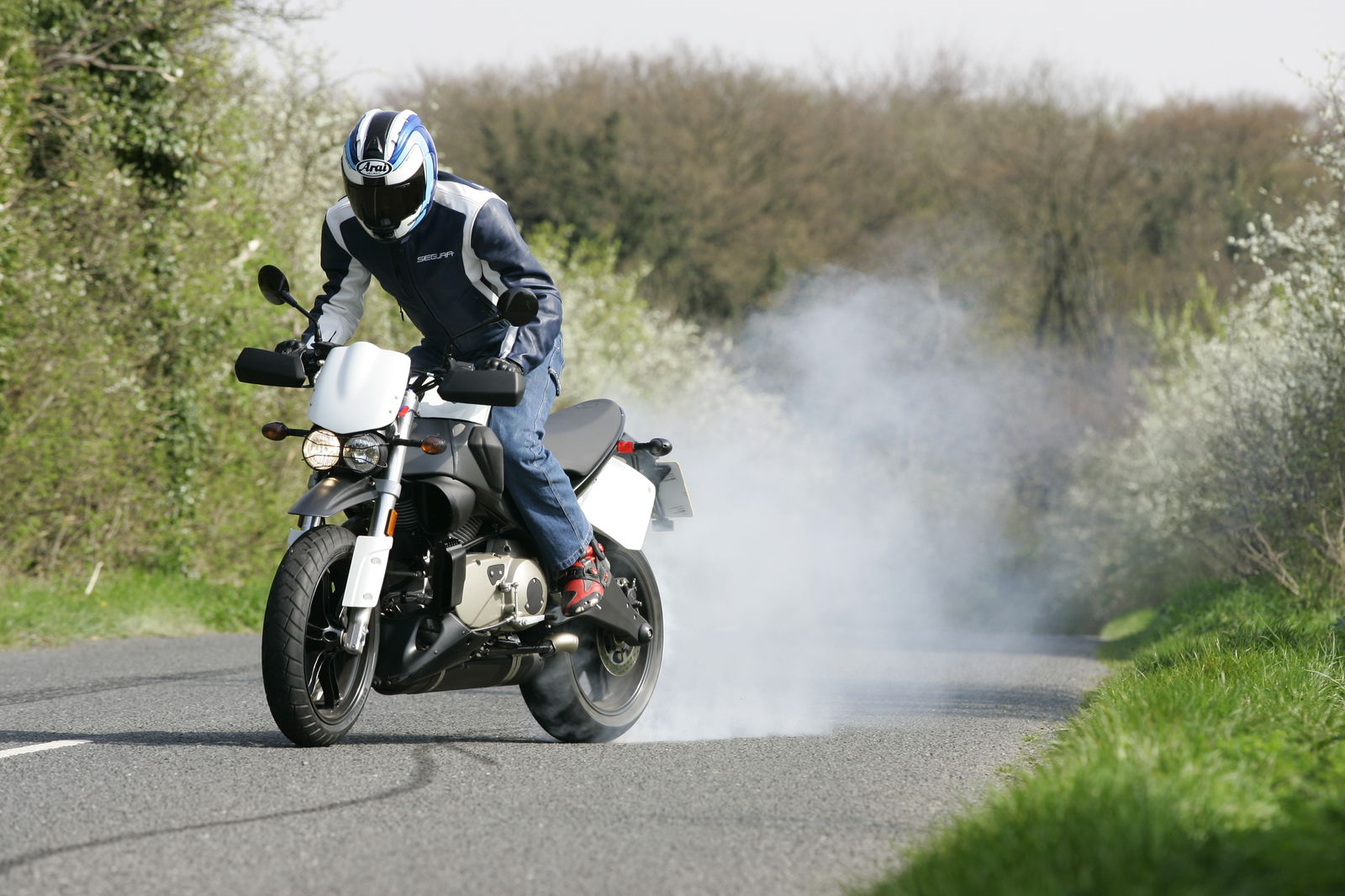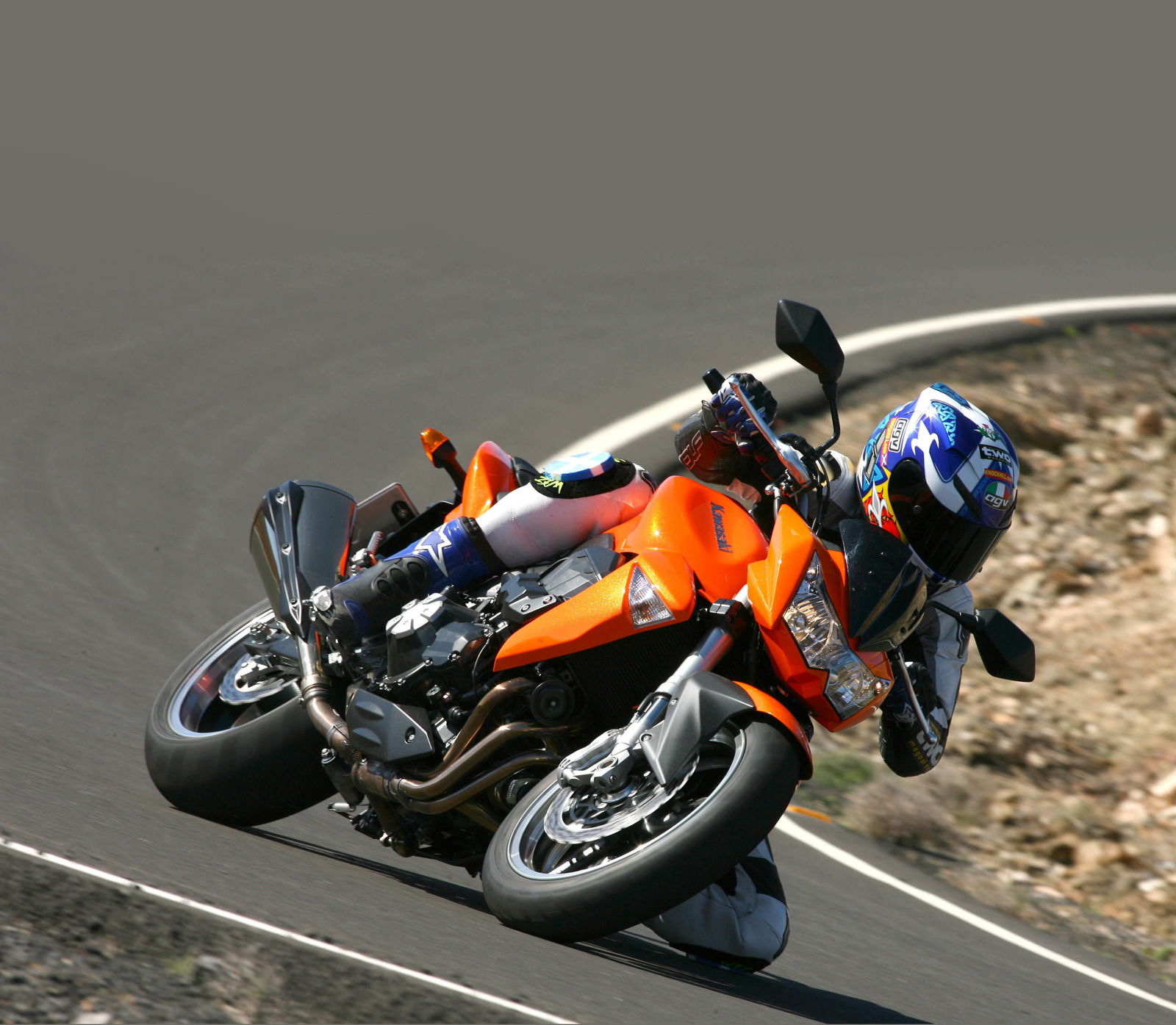First Ride: 2007 Kawasaki Z750
The Z750 quietly got on with being one of the best Kawasakis for years. Is the new model ready to kick more middleweight ass?

Kawasaki entered the competitive naked 600 market in 2004 it pulled a familiar trick. Following the 636cc ZX-6R's lead, the firm simply entered the middleweight sector with a 600 that wasn't. It was, in fact, the Z750. Buyers didn't give a sniff though, because as a package the Z750 worked really well.
While UK sales figures weren't great, since it's inception the has Z750 dominated roadtests against the competition. It even pushed the odd sports bike nose out of place on TWO's 2005 'King of Bikes' test. When updated models and new bikes such as Suzuki's GSR600 came looking, the Zed kept its guard up and defended the title. On the naked middleweight block, the Z750 was very much the Daddy.
Visually the mostly all-new Z750 is a nice evolution of the original theme, and with enough differences to instantly tell it from its 1000cc big brother. The clocks have changed too, with a neatly balanced analogue and digital layout featuring a clear, white-faced tacho in place of the old model's illegible LCD effort - just like the Z1000's you'll have seen on the previous page.
Heading into the Spanish twisties, it was within minutes apparent that this was going to be a different riding experience to the outgoing 750. The fuelling (one of the plus points on the old Zed) is still bang-on. The throttle bodies have been reduced by two millimetres from 34 to 32mm, which has helped keep things smooth, but the whole process of getting on and off the throttle has been worked on, right down to the amount of slack in the cable. It's a perfect example of how an EFI system should work.
But while the fuelling is good the power delivery isn't so inspiring. The engine has had a re-tune in an effort to find more power at the bottom and middle of the rev range. It doesn't feel weak, but it also doesn't feel like an improvement over the old model. Exiting second gear corners at 5000rpm and winding the throttle on the tacho needle meanders rather than spins around the dial, and only gets into its stride over 7500rpm. The most responsive and enjoyable part of the rev range is from just under 8000 to 11,500rpm, 1000rpm before the rev limiter brings a gentle interruption to your fun.
Considering the Zed is a naked 750 street bike, I was a little surprised and disapppointed to find it wouldn't wheelie in first off the throttle. A ping of clutch brings it up but if you're an off-the-throttle kind of guy (like I am) be prepared to have your ego bashed (like mine was).
Brakes are a little underpowered but the action is smooth, as if Kawasaki intended them to appeal to newer riders rather than track day heroes, which is probably precisely the case. I spent all day pushing them fairly hard and they didn't fade or let me down. The ABS is also a good set-up; it doesn't cut in too early, and the action is unintrusive.
The suspension was a bit of a let down with a really firm standard set-up. The front works well if you know a corner well enough to ride all the way through on a positive throttle. Pegs go down eventually and the Zed responds well to a bit of a thrashin', so long as you commit. But turn into an unknown corner on a constant throttle and the Zed displays a tendency to push wide. In car terms you'd call it understeer, but to me that word forms an image of sliding tyres. The Zed won't slide away from you - it feels very stable - but lines can get a bit wayward if you're not fully committed.
At the rear the spring feels too firm. Through dips and over crests in the Zed was firing me out of the seat. Adjusting the rebound damping by half a turn reduced the tendency but didn't eliminate it. If you're planning on buying a Z750 you might want to have it set-up just right for you - the ride was much better after I'd made a change. Then the Zed was most rewarding when the pace was quick, as long as everything was kept smooth and unhurried. Trying to rush it and throw it from ear to ear seemed to tie the bike in knots.
That the old 750 beat a CBR600RR and Speed Triple in our King of Bikes test demonstrated the versatility it offered. The new model has a lot to live up to. It goes well with a tweak here and there, plus it looks sharp and is priced competitively. Will sales success follow? That's up to you lot.
VERDICT 4/5
Great fun, and looks the business. Should still be top of the class
SPECS
TYPE - STREETBIKE
PRODUCTION DATE - 2007
PRICE NEW - £5445 / £5795 ABS
ENGINE CAPACITY - 748cc
POWER - 106bhp@10,000rpm
TORQUE - 58lb.ft@8300rpm
WEIGHT - 203kg
SEAT HEIGHT - 815mm
FUEL CAPACITY - 18.5L
TOP SPEED - 145mph
0-60 - n/a
TANK RANGE - N/A

When Kawasaki entered the competitive naked 600 market in 2004 it pulled a familiar trick. Following the 636cc ZX-6R's lead, the firm simply entered the middle weight sector with a 600 that wasn't. It was, in fact, the Z750. Buyers didn't give a sniff though, because as a package the Z750 worked really well.
While UK sales figures weren't great, since it's inception the has Z750 dominated roadtests against the competition. It even pushed the odd sports bike nose out of place on TWO's 2005 'King of Bikes' test.
When updated models and new bikes such as Suzuki's GSR600 came looking, the Zed kept its guard up and defended the title. On the naked middleweight block, the Z750 was very much the Daddy.
Visually the mostly all-new Z750 is a nice evolution of the original theme, and with enough differences to instantly tell it from its 1000cc big brother. The clocks have changed too, with a neatly balanced analogue and digital layout featuring a clear, white-faced tacho in place of the old model's illegible LCD effort - just like the Z1000's you'll have seen on the previous page.
Heading into the Spanish twisties, it was within minutes apparent that this was going to be a different riding experience to the outgoing 750. The fuelling (one of the plus points on the old Zed) is still bang-on. The throttle bodies have been reduced by two millimetres from 34 to 32mm, which has helped keep things smooth, but the whole process of getting on and off the throttle has been worked on, right down to the amount of slack in the cable. It's a perfect example of how an EFI system should work.
But while the fuelling is good the power delivery isn't so inspiring. The engine has had a re-tune in an effort to find more power at the bottom and middle of the rev range. It doesn't feel weak, but it also doesn't feel like an improvement over the old model. Exiting second gear corners at 5000rpm and winding the throttle on the tacho needle meanders rather than spins around the dial, and only gets into its stride over 7500rpm. The most responsive and enjoyable part of the rev range is from just under 8000 to 11,500rpm, 1000rpm before the rev limiter brings a gentle interruption to your fun.

